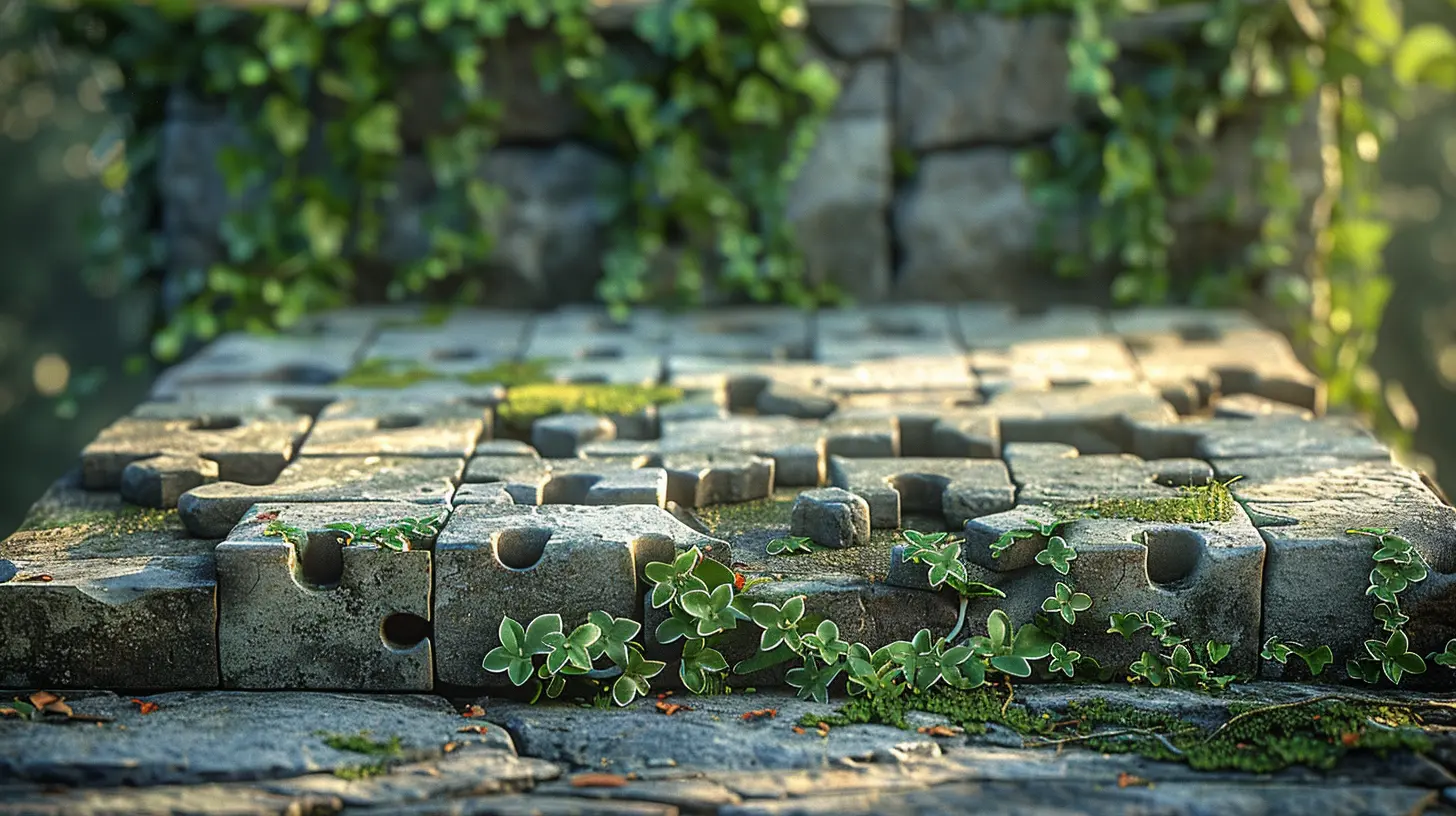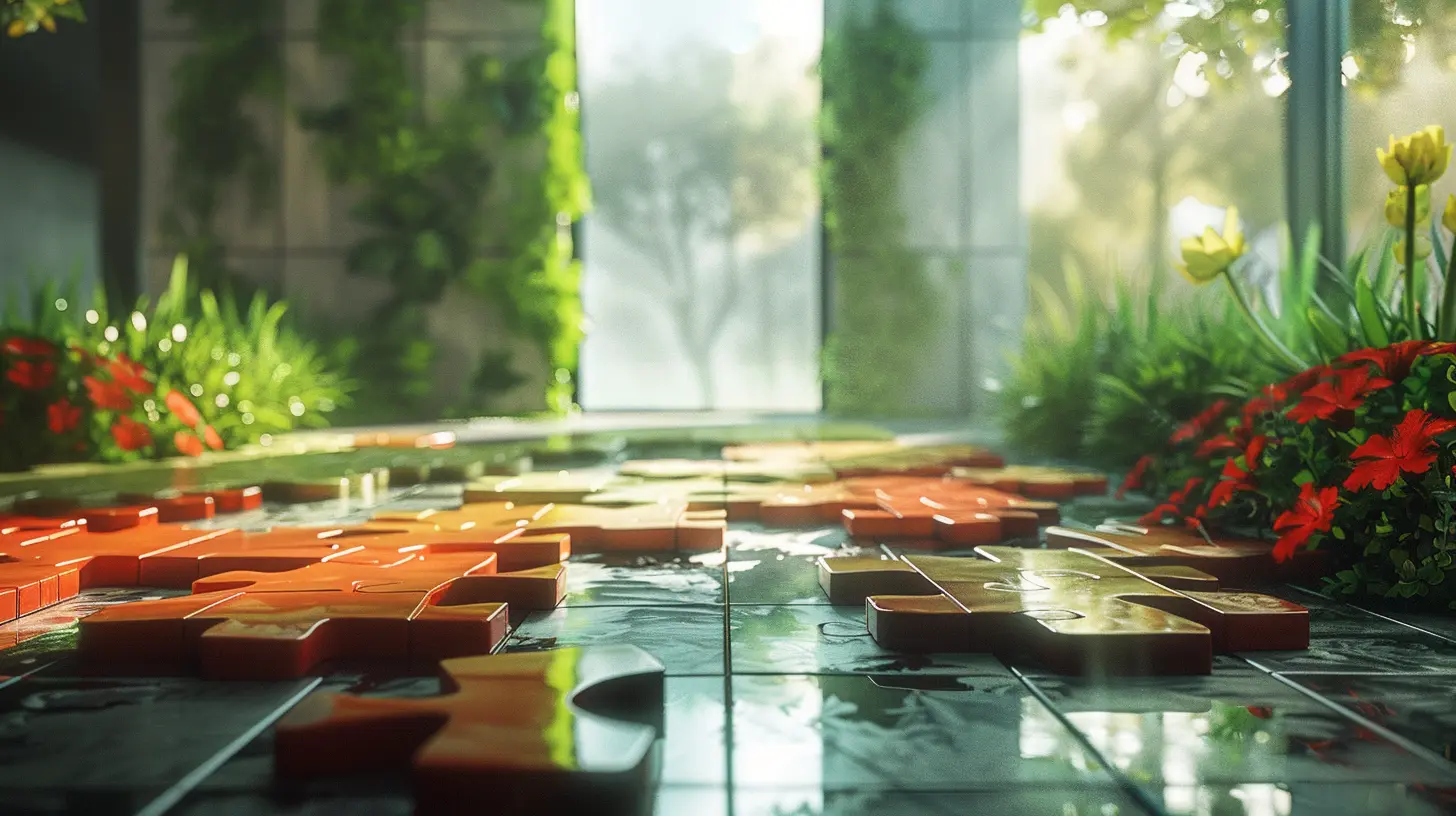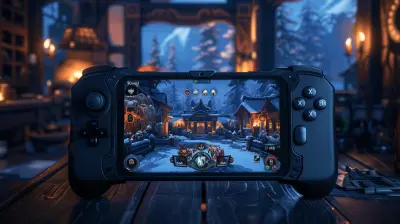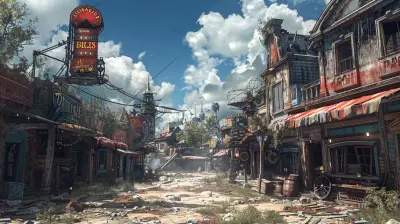Puzzle Games That Inspire Real-World Problem Solving
1 June 2025
Let’s face it—video games often get a bad rap. Some folks still think they're just mind-numbing distractions. But, if you're reading this, you already know that's not the whole story. Among the many genres out there, puzzle games shine for their ability to engage our brains in ways that can actually translate to real-life problem-solving. Yes, really—those tricky puzzles and head-scratchers aren’t just for passing time; they help build skills that can make you more resourceful, analytical, and creative.
In this article, we’re diving deep into the world of puzzle games. I’ll show you how these brain-busting titles inspire real-world problem-solving, all while keeping you entertained. Grab your thinking cap because we’re about to explore how games can help us do much more than stack blocks or connect dots.
Why Puzzle Games Matter for Problem Solving
First off, let’s talk about why puzzle games are so impactful. Ever notice how you feel a sense of accomplishment after finally solving a tough level? That’s because puzzle games force your brain to think critically, experiment with strategies, and deal with failure. These are the same skills you need to tackle everyday challenges.Think about it: solving a puzzle in a game is like figuring out how to assemble IKEA furniture without crying. Both require patience, logic, and sometimes a little creative thinking. The difference? Puzzle games make the process fun (and no missing screws, thank goodness).
Here’s what makes puzzle games so effective:
- Critical Thinking: They make you analyze situations and think several steps ahead.
- Pattern Recognition: You start noticing patterns, which can be handy in stock trading or even figuring out why your plants keep dying.
- Resilience: Failing a level a dozen times forces you to embrace trial and error, which is pretty much a life skill.
- Creativity: Some puzzles require ‘out-of-the-box’ thinking, just like solving real-world problems. (Ever used a hair tie to hold your sunglasses together? You get it.)
The Top Puzzle Games That Sharpen Your Problem-Solving Skills
Now, let’s get into the good stuff. Here are some incredible puzzle games that not only melt your brain in the best way but also build skills you can use IRL.1. Portal and Portal 2
These games aren’t your typical puzzle apps on mobile—they’re a full-blown crash course in physics and logical reasoning. Portal tasks you with navigating mind-bending levels using a gun that creates portals. Sound simple? It isn’t.Why it’s great for real life: Portal teaches you to approach problems from every angle. You’ll learn to think spatially and strategically, a skill that’s just as useful for planning room layouts or understanding why your Wi-Fi keeps dropping in one corner of the house.
2. The Witness
The Witness, created by Jonathan Blow, is basically a beautiful island filled with hundreds of puzzles. All you do is solve mazes, but don’t let that fool you—it’s one of the most challenging and rewarding puzzle games out there.Why it’s great for real life: The game makes you slow down and really observe your surroundings. It sharpens focus and patience, which can help in situations like untangling Christmas lights or decoding the cryptic texts your boss sends.
3. Tetris
Yes, I know—it’s the OG puzzle game. But Tetris has stood the test of time for a reason. Its fast-paced gameplay forces you to think on your feet and make quick decisions.Why it’s great for real life: Tetris improves spatial reasoning and decision-making under pressure. Whether you’re packing a suitcase or trying to fit a ridiculous amount of groceries into one bag, these are skills you’ll be thankful for.
4. Keep Talking and Nobody Explodes
This is a multiplayer game where one person defuses a bomb, and the others give instructions using a manual. It’s frantic, hilarious, and oddly educational.Why it’s great for real life: This game is all about teamwork, communication, and staying calm under pressure. Sounds like every group project or family dinner argument you’ve ever had, doesn’t it?
5. Baba Is You
This indie darling flips all the rules on their head—literally. In Baba Is You, you modify the logic of the game itself to solve puzzles. For example, making “Wall is Walk” lets you walk through walls. It’s chaotic, creative, and completely brilliant.Why it’s great for real life: This game teaches you flexibility in thinking. Sometimes life’s problems require you to rewrite the rules entirely—like figuring out how to get to work when your car breaks down (hello, ride-sharing apps).
What Puzzle Games Teach Us About Real-Life Problem Solving
So, what’s the takeaway here? Are we seriously saying that gaming is the perfect training ground for real life? Absolutely! Let’s break down the ways puzzle games inspire skills that you can apply outside the screen.1. Patience is a Virtue
Puzzle games force you to slow down, analyze, and try again. In a world obsessed with instant gratification, this is a game-changer. Got a tough work assignment? Channel your inner portal-placing genius and tackle it step by step.2. Break Big Problems Into Smaller Pieces
Whether you’re solving puzzles in The Witness or real-life dilemmas like “how do I fix this leaky faucet,” breaking problems into smaller steps is key. Puzzle games train you to identify these steps effortlessly.3. Collaboration is Key
Games like Keep Talking and Nobody Explodes show us that two heads are often better than one. Similarly, real-world tasks like planning an event or solving team challenges become easier when you pool your brainpower.4. Adapting to Change
Life doesn’t come with a strategy guide, and things rarely go as planned. Games like Baba Is You remind us to embrace change, think creatively, and adapt to new circumstances.
How to Bring Puzzle-Game Thinking Into Everyday Life
Alright, now we’ve established that puzzle games are basically life-hack training simulators. How do you actually use these skills in real life? Good question.1. Practice Patience: Next time you’re stuck in a frustrating situation, remember how many times you restarted that Tetris level. Stay calm and keep at it.
2. Reframe Problems: Like in Baba Is You, sometimes the solution isn’t obvious because you’re playing by the wrong rules. Take a step back and look at the problem differently.
3. Ask for Help: Bomb defusing isn’t a solo activity, and neither is life. Don’t hesitate to involve your team, family, or friends for fresh perspectives.
4. Learn From Failure: Every “Game Over” is just a stepping stone to victory. Embrace failure as part of the process, whether you’re solving a puzzle or navigating a career change.
Final Thoughts
Puzzle games aren’t just entertainment—they’re mental exercise disguised as fun. They teach us how to think critically, stay persistent, and be creative in solving problems. Whether it’s stacking blocks in Tetris or rewriting the rules in Baba Is You, every time you play, you’re sharpening skills that can help you in the real world.So, next time someone scoffs at your gaming habits, just remind them that you’re in training for life’s challenges. And honestly, doesn’t life sometimes feel like one giant puzzle game anyway?
all images in this post were generated using AI tools
Category:
Puzzle GamesAuthor:

Stephanie Abbott
Discussion
rate this article
3 comments
Ariana Gutierrez
Engaging puzzles effectively bridge gaming and real-life logic.
June 15, 2025 at 3:30 PM

Stephanie Abbott
Absolutely! Puzzle games not only entertain but also enhance critical thinking skills, encouraging players to apply logic and creativity in real-life situations.
Thea Strickland
Fascinating connection! Can't wait to explore how puzzles impact real-life skills!
June 10, 2025 at 4:14 AM

Stephanie Abbott
Thank you! I’m excited for you to dive in and discover the connections!
Thornewood Alvarez
These puzzle games brilliantly enhance critical thinking skills, translating virtual challenges into real-life solutions!
June 2, 2025 at 3:43 AM

Stephanie Abbott
Thank you! I'm glad you recognize the real-life benefits of puzzle games in enhancing critical thinking skills!



